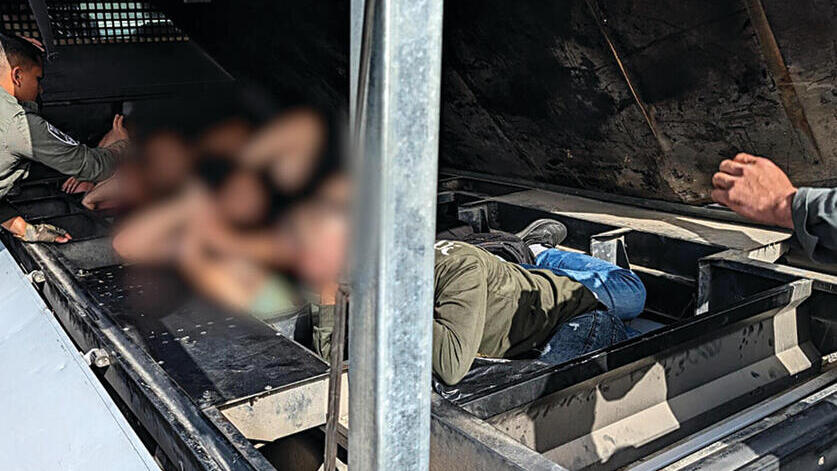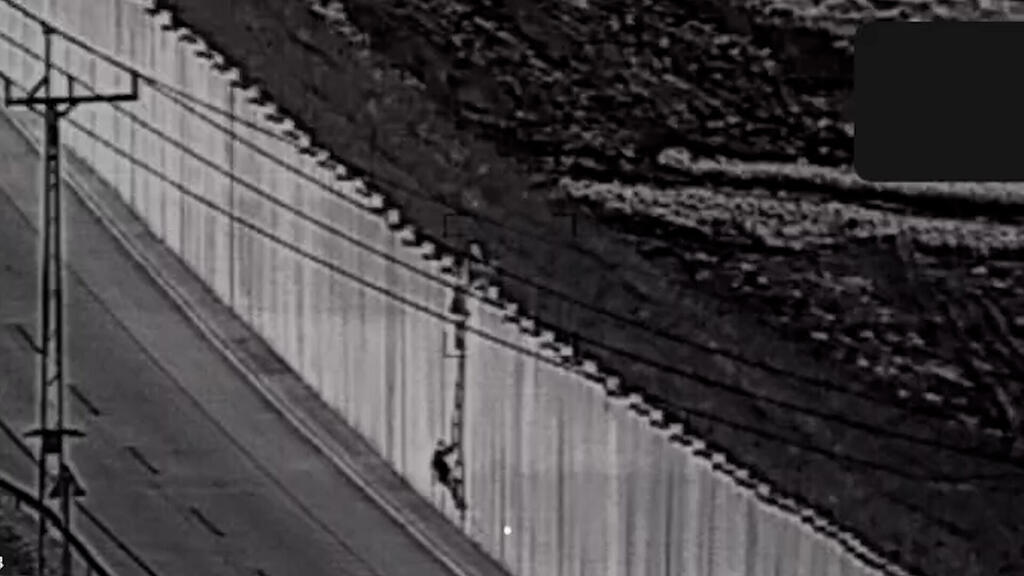Getting your Trinity Audio player ready...
The complex security situation in addition to the current political chaos leaves the issue of tens of thousands of Palestinian workers in Israel in a particularly precarious and volatile state. Security officials explain that the unresolved matter undermines stability in the West Bank.
Officials plan to request the political echelon to revisit the topic and have drafted a document highlighting its urgency after at least four previous attempts to address it were postponed. Meanwhile, around 40,000 illegal Palestinian workers are employed in Israel.
These 40,000 illegal workers compromise security along the West Bank barrier and within Israel, hampering the security forces' ability to monitor and control entries. Although the number of illegal workers is gradually increasing, it is still far from the pre-war figures, significantly impacting the Palestinian economy. The inability to legally enter Israel for work also deters many permit-holding workers from infiltrating, fearing arrest and loss of their permits.
"They abandoned the pilot program due to opposition from Bezalel Smotrich and Itamar Ben-Gvir," a security source explained. "Truthfully, the security establishment isn't pushing hard enough either. Currently, about 6,500 essential workers legally enter Israel, plus another 10,000 in the industrial zones in the West Bank, which is very few. We clearly want more, but it's up to the political echelon. Netanyahu can't make decisions."
According to the officials, the absence of workers undermines security, creating a clear chain reaction. "When there's no money from one side, it comes from the other, from Iran. Young Palestinians without income turn to terror activities funded by Iran and Hamas, who exploit the situation. The economic hardship also leads to criminal activities. For comparison, since the start of the war, there have been 42 bank and jewelry store robberies, compared to 22 similar incidents in 2023."
Beyond the security issue, there's also an economic aspect. Before the war, 150,000 Palestinians worked within the Green Line and in the Jewish settlements, mostly in construction and agriculture. These sectors are not deemed essential in emergencies and thus haven't been authorized to employ Palestinian workers since October. This means nearly nine months without Palestinian workers. The implications on the ground are severe: The real estate market is nearly at a standstill due to a lack of builders, agriculture faces a severe labor shortage, and ripe crops are being wasted, leading to enormous losses for farmers.
These are just some of the reasons why the Shin Bet, IDF, the Coordinator of Government Activities in the Territories, and the National Security Council, have been urging the cabinet for six months to convene and discuss the issue of admitting Palestinian workers. This push, supported by Defense Minister Yoav Gallant, includes several proposed pilot programs. One such proposal suggests initially increasing the number of legal workers in Israel to 15,000, using a closed-loop entry system.
Regardless, the economic situation for Palestinians in the West Bank continues to deteriorate, with unemployment rising to 33%, up from 12% before the war. In an attempt to mitigate the situation, authorities have been easing restrictions where possible. Last month, the Salem and Gilboa crossings were reopened to visitors, and the Foqous crossing near Beit El was also opened earlier this week. However, these are merely cosmetic solutions. The security establishment has been warning for months that without a comprehensive solution, the volatile situation in the West Bank could escalate further.



